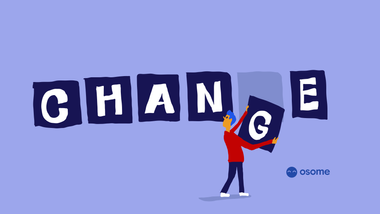What You Need To Know About Singapore’s GST Rate Change in 2023
Here’s the thing: every Singapore business will experience a major change in 2023 as a result of the GST hike. So, what can you do to prepare for the rate change, and what is the Government doing to help? Here’s what you need to know, all wrapped up in one article.

In the Singapore Budget 2022, Minister of Finance Lawrence Wong announced that GST (Goods and Services Tax) will be gradually increased. Needless to say, tax increases will affect small businesses. Don’t worry — proper planning for the rate hikes can help your business ease the impact of the GST increase.
Read on to find out everything you need to know about Singapore’s GST rate change.
Skip to:
What Is GST?How Much Is the GST Hike?
When Does the GST Hike Take Effect?
Why Is Singapore Increasing the GST?
The Impact on GST-Registered Businesses
What Is the Government Doing To Help?
Should Non-GST Registered Businesses Apply for Voluntary GST Registration?
The Cost of Non-Compliance
Simplify Tax Moving Forward
What Is GST?
GST, also known as Goods and Services Tax, is a value-added consumption tax levied on imported goods, as well as most supplies of goods and services. GST is known as Value-Added Tax or VAT in other countries.
How Much Is the GST Hike?
Singapore will be increasing GST from the current 7% to 8% in 2023. This hike will be gradually raised to 9% in 2024, to allow Singaporeans and businesses ample time to prepare for this impending tax increase.
When Does the GST Hike Take Effect?

The GST hike will take effect from 1 January 2023, and the next one from 1 January 2024.
This means that issued invoices before 1 January 2023 should include 7% GST on goods and services, 8% from 1 January to 31 December 2023, and 9% from 1 January 2024 onwards.
Why Is Singapore Increasing the GST?
The Singapore government's annual expenditure is mainly made up of social spending, especially for healthcare. From 2009 to 2019, government spending jumped from S$33 billion to S$75 billion annually. In the same period, healthcare spending increased from S$2.2 billion to S$11.3 billion.
Since Singapore faces an ageing population, the projected amount of healthcare spending at its current rate is expected to add up to 3.5% of GDP. By 2030, nearly one in four Singaporean citizens is expected to be 65 years old and above. So, the Singapore government is expected to build more clinics, and hospitals and offer subsidies on medication for the elderly to reduce future healthcare costs.
The Impact on GST-Registered Businesses
If your business is GST-registered, this is what you need to do.
For any supply of goods or services that you make on or after 1 January 2023, you will charge the GST at a rate of 8%. For instance, if you issue an invoice and receive payments for your supply on or after 1 January 2023, you will have to account for GST at the new rate of 8%.
For invoices that span across the periods — for instance, an invoice issued on 30 December 2022 but only fulfilled or delivered in January 2023 will have to be reversed through credit notes and the invoice should be reissued at the applicable GST rate, i.e. 8%.
To prepare for the hike, you can also check if you have done the following:
- Update the cash register and receipting system to incorporate the new GST rate for point-of-sales billing
- Comply with the price display requirements
- Train staff on the transitional rules for a rate change and to apply the correct GST rate for sales transactions and reverse charge supplies spanning the date of rate change
- Review contracts/agreements for the GST rate to be charged or borne by each party
- Inform customers of the GST increase
- Consider applying for the Major Exporter Scheme if your business deals mainly with imports and exports
Tip
For more information, you can head over to the official Inland Revenue Authority of Singapore (IRAS) website.
What Is the Government Doing To Help?
We understand that all this may feel overwhelming, but fortunately, the Government is trying to minimise the impact with the GST Assurance Package.
Announced in late 2019, this package was under the 2020 state budget to assist low and middle-income earners ease the challenges of a GST hike. Under this S$6 billion package, all Singaporean adults will receive between S$700 to S$1,600 depending on their earning power. This will be dispersed over five years, from 2022 to 2026, in the form of cash payments. The first payout has been made in December 2022. Additionally, the Government has also increased the package by S$640 million.
Should Non-GST Registered Businesses Apply for Voluntary GST Registration?
Non-GST-registered businesses may face a hike in the cost of goods and services bought from GST-registered suppliers following the GST hike.
To mitigate the rising business costs as a result of the GST hike, non-GST registered businesses can consider voluntarily applying for GST registration to recover the incurred GST from expenses. However, businesses that voluntarily register for GST must stay registered for two years, and here are some considerations before you decide whether to apply for GST registration:
- Responsibilities of being a GST-registered business
- Your supplier profile
- Your customer profile
- Type of sales made by you
If you decide to register your non-GST registered business before 1 January 2024, there will be additional compliance costs. Consider whether your business can bear the additional compliance costs as a result of the GST hike — otherwise, it may be a wiser decision to remain non-GST registered, or defer your GST registration until or after 1 January 2024.
However, if you wish to register for GST, our experts at Osome can help you do so and file taxes accurately and on time.
The Cost of Non-Compliance
A higher GST rate means non-compliance comes with high penalties. This is because penalties are usually imposed on the value of tax that is over-claimed or underpaid. For instance, there is a 5% late payment penalty for a tax that is over-claimed or under-declared.
Other than the higher penalties involved, the revenue could also be affected because of non-compliance.
For example:
Stephanie’s 7% standard-rated supply at S$200,000 is zero-rated incorrectly. This means that GST is charged incorrectly at 0%. In this instance, Stephanie will have to account for the GST payable to IRAS according to the GST-inclusive method.Under this GST-inclusive method, Stephanie has to compute the GST payable according to the tax fraction (which is 7/107 currently) of the sales consideration. In other words, Stephanie’s revenue will be reduced to S$186,915.88 instead of S$200,000 as the GST payable would be S$13,084.11. When the GST increases to 8% in 2023, this means that Stephanie will experience reduced revenue of S$185,185.19 instead of S$200,000 since the GST payable would be 8/108 x S$200,000, which is S$14,814.80.
The impact of Stephanie’s revenue is reduced due to the non-charge of GST.
Simplify Tax Moving Forward
GST errors can cost businesses a lot of money. We can help you simplify your tax compliance process and reduce errors. Our expert accountants and smart software help you keep on top of taxes with minimal effort.
Tip
Still unsure of what the GST hike means for your business? Get in touch with our team for specialised advice.







